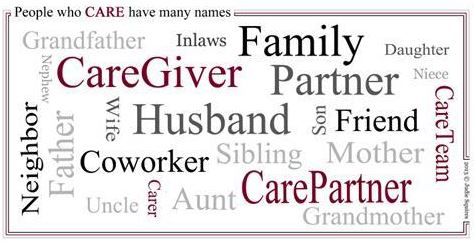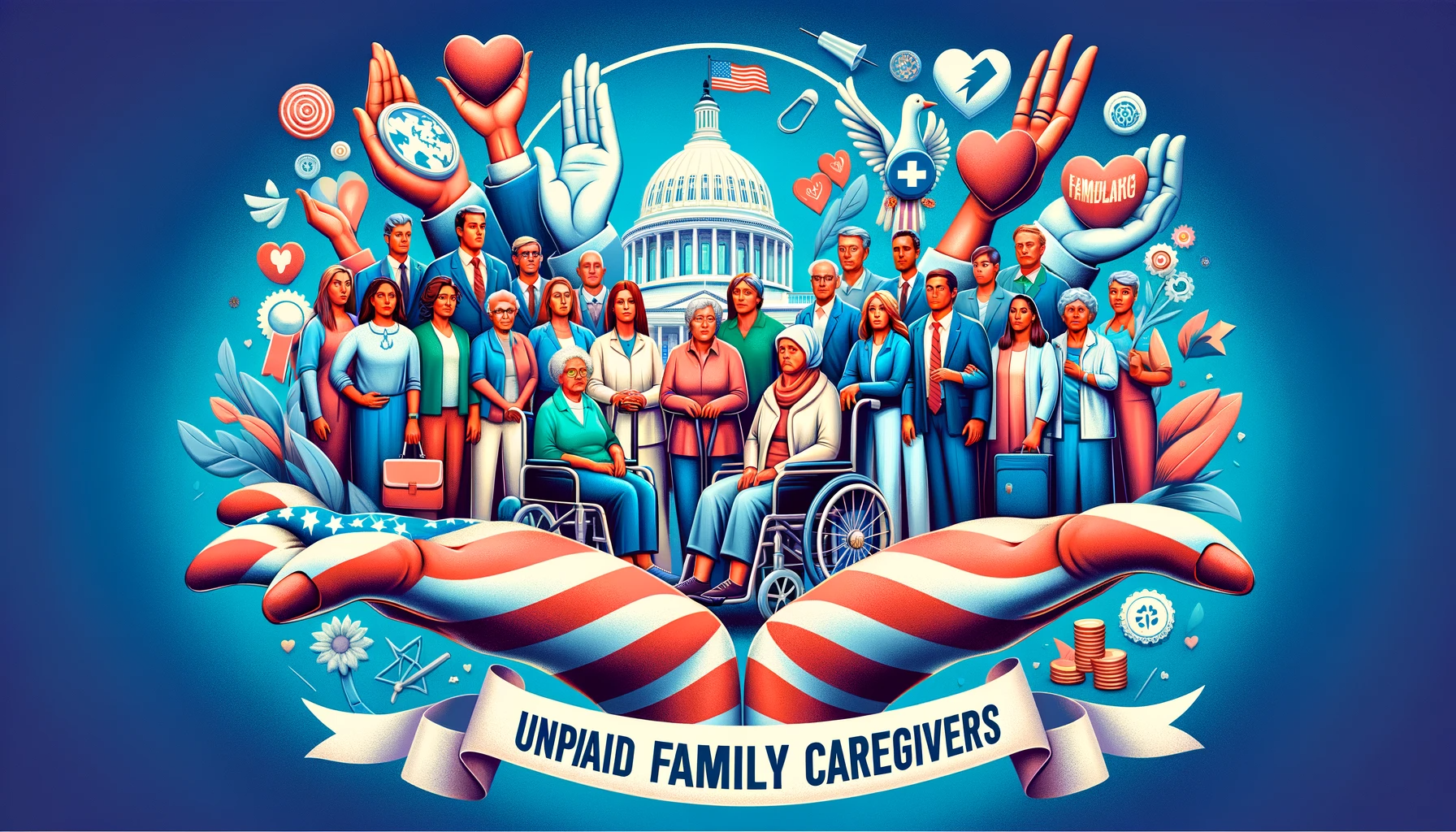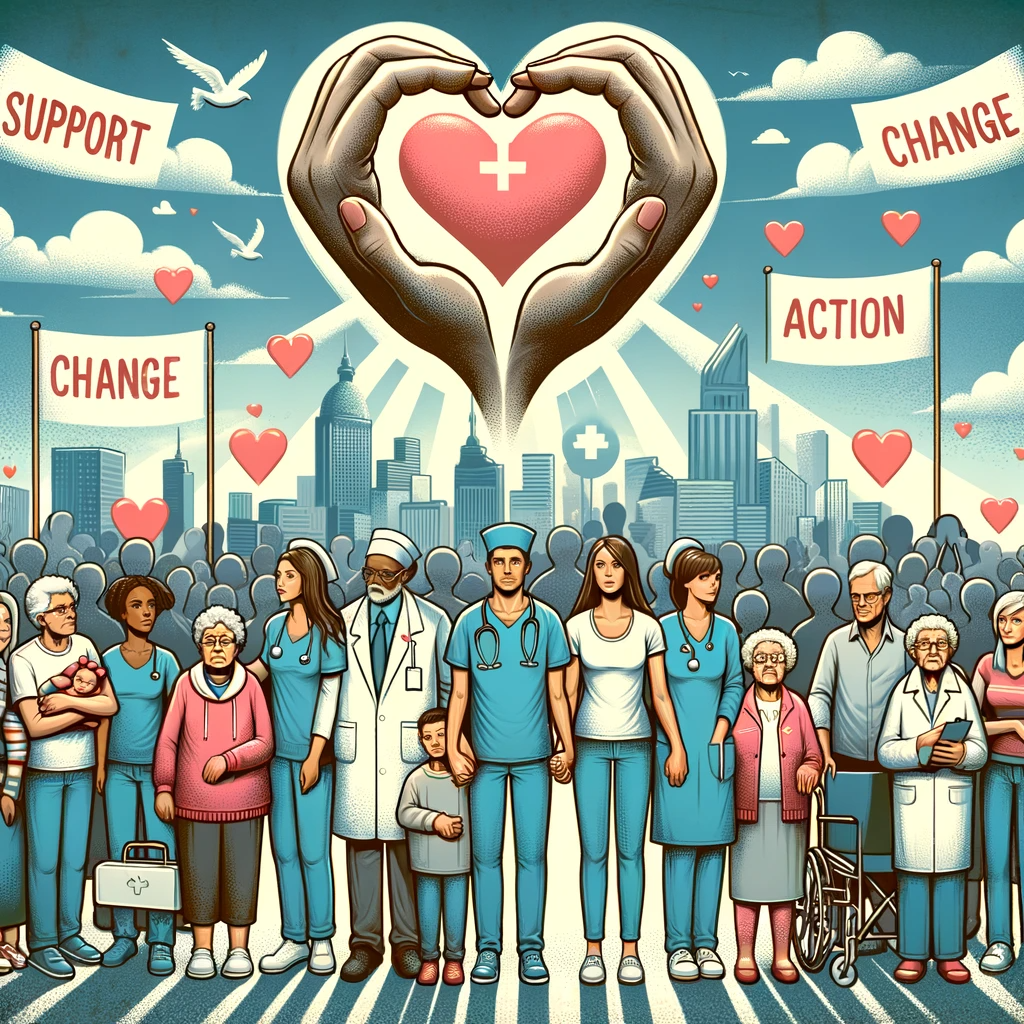Empowering the Unseen Heroes a Call to Action For Americas Family Caregivers
Explore the critical role of unpaid family caregivers in America and the movement for change. This post delves into their challenges, the 2025 White House Conference on Aging, and the urgent need for policy reform to support these unsung heroes.

Introduction
In the United States, the silent and often unrecognized backbone of healthcare comprises millions of unpaid family caregivers. These individuals tirelessly devote their time, energy, and resources to support loved ones, typically without any financial compensation or formal recognition. The landscape of caregiving in America reveals a profound need for systemic change. This article explores the current state of family caregiving, illuminating the challenges these caregivers face and advocating for a movement to transform their role in society.
The Current State of Family Caregiving in America: A Detailed Examination
Caregivers in the US: A Statistical Overview
In the United States, the fabric of family caregiving is complex and expansive. It's estimated that millions of Americans serve as unpaid family caregivers. These caregivers play a pivotal role in the healthcare system, providing essential support to a wide range of individuals, including aging parents, disabled children, and those with mental health challenges.
The statistics reveal a significant portion of these caregivers focus on elder care. However, an often overlooked segment includes those caring for disabled children, many of whom continue to require care into adulthood, and individuals with chronic mental health issues. This diversity in caregiving roles underlines the multifaceted nature of family caregiving in America.

Unpaid family caregivers are teh back bone of the long term care and home care industry.
The Aging Crisis and Its Impact on Older Adults
The aging crisis in America adds another layer to the caregiving landscape. As the population ages, the demand for caregivers increases exponentially. This demographic shift not only affects the elderly but also impacts caregivers who are aging themselves. Many find themselves in the challenging position of providing care while potentially facing their own health issues. Various health concerns, such as chronic illnesses and mobility issues, can significantly impact family dynamics, leading to stress and feelings of isolation amongst caregivers and family members.
Caregivers for Aging Disabled Children and Mental Health Challenges
When it comes to caring for disabled children, particularly those who age into adulthood, the challenges are unique. Specialized care is often required, necessitating additional training and licensing for caregivers assisting individuals with specific medical needs. These caregivers often face a lifelong commitment that can span several decades. The transition from child to adult care for these individuals requires a shift in approach and resources, often without adequate support or guidance.
Similarly, caring for individuals with mental health issues presents its own set of challenges. These caregivers must navigate a healthcare system that is often ill-equipped to provide long-term mental health support. The unpredictability and complexity of mental health conditions can result in an increased emotional and physical toll on the caregivers.

Caregiver stress and burden impacts the health of caregivers
Profile of a Family Caregiver
Family caregivers in the United States come from all walks of life, but they share common experiences. A home health aide can play a crucial role in providing personal care for aging individuals who may require assistance with everyday activities like bathing and grooming. Many balance caregiving with full-time jobs, personal care, and other family responsibilities. This juggling act is not just a testament to their dedication but also a reflection of the immense pressures they face daily.
The profile of a family caregiver is diverse, encompassing all ages, genders, and socio-economic backgrounds. However, a significant number are middle-aged, and a considerable proportion are women. These caregivers often find themselves in the ‘sandwich generation,’ caring for both aging parents and their own children.
The Emotional Support and Physical Strain
The emotional and physical strain on family caregivers is substantial. Recognizing and prioritizing their own needs is crucial to prevent burnout and maintain their well-being. They often report high levels of stress, anxiety, and depression, stemming from the constant demands of caregiving. The physical demands, especially when caring for individuals with significant mobility or health issues, can lead to burnout and health problems in caregivers themselves.
The Financial Impact
The financial impact on family caregivers cannot be overstated. Many incur out-of-pocket expenses related to caregiving, and some even reduce working hours or leave their jobs entirely to provide care. This loss of income, coupled with the additional expenses, can lead to significant financial strain.
The current state of family caregiving in America is a complex tapestry woven with dedication, love, and untold challenges. As the population continues to age, the demand for caregivers will only grow, making it imperative to address the needs of this crucial segment of our society. Recognizing, supporting, and empowering these caregivers is not just a matter of social responsibility but a necessity for the well-being of our nation as a whole.

Support the family caregiver and direct care worker
The Unpaid Caregiver: Challenges and Sacrifices
Emotional and Financial Toll
The role of an unpaid caregiver, while filled with love and dedication, comes with substantial challenges that are often unsustainable in the long term. Caregivers play a crucial role in facilitating transportation to medical appointments for older adults, addressing mobility challenges that may impede access to healthcare. The emotional toll is immense, with caregivers frequently experiencing high levels of stress and anxiety. This emotional burden is compounded by the constant vigilance and care required, often leading to caregiver burnout—a state of physical, emotional, and mental exhaustion.
Caregivers often report feelings of isolation and depression, as their role can limit social interactions and personal time. The emotional impact is not just confined to the period of active caregiving; it can have long-lasting effects on their overall well-being and mental health.
Financially, the situation for many unpaid caregivers is dire. They incur numerous out-of-pocket expenses, from medical bills to daily care supplies, often without any form of reimbursement. The situation is exacerbated when caregivers have to reduce their working hours or leave their jobs altogether to meet caregiving demands. This loss of income, coupled with increased expenses, creates a significant financial strain, leading to economic instability for many families.
The Unsustainability of Current Practices
This combination of emotional and financial burdens creates a situation that is not sustainable. Caregivers play a critical role in coordinating healthcare services for older adults, which includes communicating with healthcare providers and ensuring that necessary care and support is received. Without formal support, caregivers are at risk of depleting their resources—both emotionally and financially. The lack of structured assistance and recognition exacerbates this issue, leaving caregivers to fend for themselves in a system that is not designed to support the long-term, intensive demands placed on them.
The Need for Recognition and Support

Despite their critical role, unpaid caregivers often remain invisible in the healthcare system. Their contributions, while invaluable, are frequently overlooked in policy discussions and social support systems. This lack of recognition further marginalizes their position, making it difficult to advocate for and receive the support they desperately need.
The need for societal and governmental acknowledgment of unpaid caregivers is growing. This acknowledgment should not be limited to verbal appreciation but should extend to tangible support mechanisms. There is a pressing need for policies that provide financial assistance, access to healthcare, and social support systems tailored to the unique challenges faced by caregivers.
Towards a Sustainable Model of Caregiving
Developing a sustainable model of caregiving requires a multi-faceted approach. It involves creating awareness about the challenges faced by unpaid caregivers, integrating their needs into policy-making, and establishing robust support systems. Caregivers play a crucial role in supporting older adults within various settings, including homes, assisted living facilities, and nursing homes. This model should include:
- Financial assistance programs to offset the costs associated with caregiving.
- Access to affordable healthcare for caregivers, recognizing the physical and mental health toll of caregiving.
- Respite care options to provide temporary relief for caregivers.
- Educational resources and training for caregivers to manage their roles effectively.
- Support groups and community networks to reduce isolation and provide emotional support.
The challenges faced by unpaid caregivers in America highlight a critical gap in our healthcare and social support systems. It’s a situation that demands immediate attention and action. By recognizing and supporting these unsung heroes, we can move towards a more sustainable and compassionate model of caregiving—one that honors the dedication of caregivers and ensures their well-being.
Expanding the Call for Change: Family Caregivers and the 2025 White House Conference on Aging
The 2025 White House Conference on Aging (WHCoA) presents a critical opportunity for addressing the needs of America’s aging population and the unpaid family caregivers who support them. Supporting independent living for older adults is crucial, as it helps them maintain their independence and reduces the burden on family caregivers. As we approach this pivotal event, it is essential to understand its significance and the impact it can have on shaping policies for the next decade.
The Unpaid Caregiver: Challenges and Sacrifices
Emotional and Financial Toll
Unpaid caregivers are often subjected to a relentless cycle of emotional and financial pressures. These pressures can manifest as chronic stress, anxiety, and depression, deeply affecting caregivers' mental health. Financially, the burden is just as heavy, with many caregivers facing significant out-of-pocket expenses and a loss of income due to reduced working hours or job cessation. This unsustainable situation highlights the need for a systemic overhaul to support these individuals.
The Unsustainability of the Current Model
The current model of family caregiving in America is marked by a lack of formal support and recognition. This gap not only strains the caregivers but also threatens the overall quality of care provided to the aging population. The system's failure to address these challenges jeopardizes the well-being of both caregivers and care recipients.
The 2025 White House Conference on Aging: A Platform for Change

Significance of the WHCoA
The WHCoA, held once a decade, is a forum where policymakers, healthcare professionals, and advocates come together to discuss and shape the future of aging policies in the United States. The conference's outcomes can influence legislation, funding allocations, and the creation of programs that directly affect the elderly and their caregivers.
Addressing Caregiving in the Aging Crisis
The 2025 conference is poised to play a crucial role in addressing the aging crisis. With the aging population increasing, there is an urgent need to develop policies that support not only the elderly but also the family members who care for them. It is essential to have a plan in place to meet the changing medical needs of loved ones, ensuring they receive appropriate medical care. This conference could be a turning point in acknowledging and addressing the challenges faced by unpaid caregivers.
Building Momentum: The Role of Advocacy and Public Support

Help us by sharing this petition with others
Mobilizing Support Through Petitions and Advocacy
Gaining a spot on the agenda of the WHCoA requires concerted efforts from all stakeholders. Petitions, advocacy campaigns, and public support are instrumental in bringing the issues faced by unpaid caregivers to the forefront. These efforts can create the momentum needed to ensure that caregiver support becomes a central topic at the conference.
The Power of Public Awareness
Raising public awareness about the role and challenges of unpaid caregivers is crucial. A well-informed public can advocate more effectively and lend their voices to the cause, influencing policymakers and legislators.
A Call to Action: Policy Proposals and Solutions
Financial Assistance and Healthcare Access
Proposals for the WHCoA should include concrete measures for financial assistance and healthcare access for caregivers. This could involve tax credits, caregiver allowances, and the expansion of healthcare coverage to include caregiver-specific health services.
Respite Care and Support Systems
The need for accessible and affordable respite care is another critical issue. Caregivers play a crucial role in providing comprehensive support to older adults, ensuring their physical, emotional, and practical needs are met. Respite services provide caregivers with much-needed breaks, helping prevent burnout and maintain their health. Additionally, creating robust support systems, including training and emotional support networks, is essential.

Direct care workers provide support for the family caregiver
Career Advancement for Direct Care Workers
The conference should also address the needs of direct care workers by proposing the creation of career advancement paths. This would include certification programs and wage enhancements, acknowledging their vital role in the caregiving ecosystem.
Conclusion
The 2025 White House Conference on Aging represents a significant opportunity to advocate for the needs of unpaid caregivers and direct care workers. By building momentum through advocacy, public support, and concrete policy proposals, we can ensure that the challenges faced by these vital contributors to our healthcare system are not just recognized but also effectively addressed. This conference can set the stage for a decade of progressive change, impacting millions of lives and shaping the future of caregiving in America
Please Sign and Share this petition our future depends on it
You might also like this article:
Our Resources section can help you find the information and tools that you need. We have courses, videos, checklists, guidebooks, cheat sheets, how-to guides and more.
You can get started by clicking on the link below. We know that taking care of a loved one is hard work, but with our help you can get the support that you need.
Click here to go to Resources Section now!





